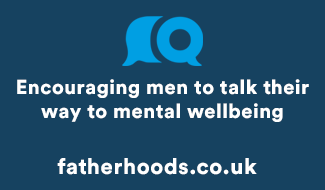Supervised contact means that someone will remain present at all times when a parent is having contact with his or her child.
Supervised contact can be an option when there has been high conflict between the parents sometimes witnessed by the children, where there has been domestic abuse, or a Family Court injunction order or a conviction relating to domestic abuse. Perhaps the parent who lives with the children has concerns about the other parent’s parenting skills or behaviour towards the children or it may be because there has been a lengthy gap since the last contact.
Find out information about local contact centres and the centre that best suits your needs.
Supervision may be provided by a family member, for example, by a grandparent, or by a trusted friend. It is essential if an individual is identified as a potential supervisor that individual has the situation fully explained as supervision is a responsibility and can be a great time commitment. After all the supervisor is agreeing to be present each and every time contact takes place and often has responsibilities for collecting and returning the children so that the parents do not come face to face. There may also be conditions the parents agreed on contact arrangements which the supervisor would need to respect.
As supervision is such a responsibility, the parents cannot always identify someone able to provide regular supervision. If there is no-one, another option is using a contact centre. To find a local contact centre go to www.naccc.org.uk These centres are usually staffed by volunteers, have limited availability and are open for certain hours during the week. It is important, therefore, to find out this information before using the centre. Also, although contact at a contact centre is usually called “supervised” it is more accurate to call it “supported”. Supervised contact at a contact centre is one to one contact overseen by a supervisor whereas supported contact is the parent and children in the centre with other parents where a staff member remains in the same room but does not closely oversee the contact. If contact goes well after a few sessions contact evolve, progressing to unsupervised. If conflict remains between the parents, the next step may be the contact centre being used as a handover point for contact so that the parents do not need to meet.
Top Tips
Accept at the outset supervised contact is not a long-term solution. The aim is to initiate contact so contact will evolve to unsupervised contact.
Decide on the ground rules for supervised contact before the first visit. Are there going to be conditions in addition to supervision?
Dos and Don’ts need to be clear to both parents so that contact does not breakdown because of mis-communication.
Ask a relative or friend if they are prepared to be a supervisor and for how long and how often? Do not assume. Supervision is a big responsibility.
Find out information about local contact centres and the centre that best suits your needs.
Remember the Court’s view is that children’s best interests usually mean having a relationship with both parents so no contact at all is rarely ordered by a Court.
Supervised contact can be helpful to build trust between the parents.
Questions to ask your solicitor
Is there a contact centre in the area? Where is the contact centre?
How long is contact likely to remain supervised?
What if contact is agreed in principle but I do not want to meet the other parent?
What if not even supervised contact can be agreed?
Do I need a Court order before contact is supervised?
Posted on December 15, 2017














